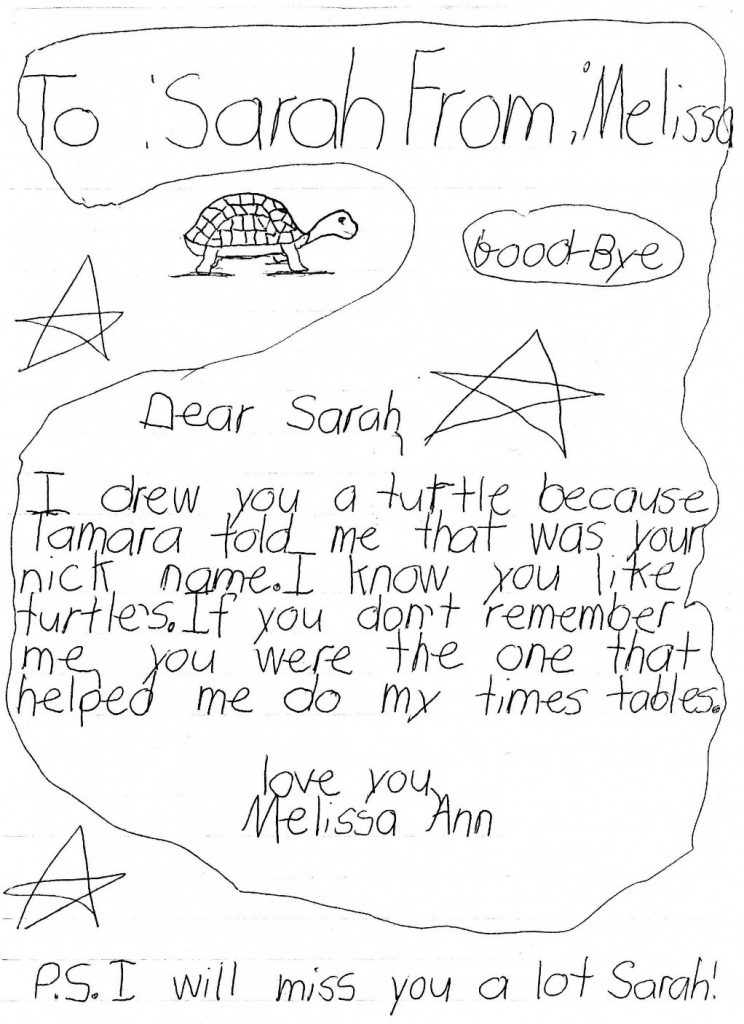December 13, 1977
My few days at the abortion clinic. The doctor is an OB/GYN who has also been doing abortions for 5 years. The office is attractive and comfortable. No one has ever been turned away for financial reasons. They will do abortions up to 14 weeks; after that they will refer the woman to someone who will do it later than that.
My first day; the receptionist gets a call at 8:30am. “Yes, Ma’am, I’m glad your mother did not have an abortion and I’m glad my mother didn’t either…No, we are not influenced by Communists. We don’t want to have anything to do with Communists…No, anyone who gets an abortion wants one. We don’t force people to have them.”
Every woman is personally counselled before the procedure. The woman is informed of the alternatives (having it and keeping it or giving it up for adoption, or having the abortion). The woman is asked why she wants it and is asked to sign a consent form. The procedure is explained in detail: the lab work (blood pressure, HCT (hematocrit); Rh typing and urinalysis); the actual abortion and the post session.
The woman is told what may happen as far as cramping: what to watch for; who to call if she has any questions. (Don’t go to the local Catholic hospital emergency room; women who have get pretty bad treatment.)
The first woman I go through with is young (about 20), unmarried, with her father. She is cool, a little afraid but very realistic. Everything goes OK with no problems. We talk before and after. She wants an apartment and is ready to leave home. Her father is surprisingly calm and is glad it isn’t “like the butcher shop years ago, f’ Chrissake!” We talk about Rhogam (she is Rh-negative), other methods of birth control, and so on.
The women are of all ages: young, middle aged, married with kids, single, divorced. Rich, middle class and poor. The reasons: “I’m not ready to start a family.” “I have kids and I’m getting too old.” “I can’t take being pregnant again.” How they got pregnant also varies: rhythm that didn’t work; a busted rubber; foam and no rubber; forgot the diaphragm; just got careless.
Some want to have kids later and feel it is the wrong time to start families. Some are from small towns, some from the big city. Catholic, Protestant, other.
Many of them are resentful of the Illinois legislature. Some think the representatives (mostly men) ought to try being pregnant. Most feel the option ought to be available. Everyone is glad to get it over with and swear they will never take chances again.
One woman today expressed frustration and anger at her husband, and at men in general who think birth control is always the woman’s responsibility. I’ve heard the reasons she says her husband gives and can’t believe people are still really like that. I feel for her because she is in a rotten position and needs some support. I listen and agree with a lot of what she says; she apologizes unnecessarily for “offending me.”
Next week I’m supposed to do the counseling myself (with an experienced counselor watching). This afternoon I will spend all night in labor and delivery. Strange world.
I wrote that almost forty-five years ago during my third year of medical school and a month shy of Roe v. Wade’s fifth anniversary. This year’s may be Roe’s last.
The physician, Dr. Richard Ragsdale, was a kind and compassionate man whose face resembled Lee Marvin. He would gently explain to the patient what would happen and always gave her the option of backing out. He would close his eyes when doing a bimanual pelvic exam, as if he was trying to mentally visualize the uterus. When the procedure was over, he would help her sit up, remind her of what to expect that was normal or concerning, and ask if she had any questions.
Then, as now, providing abortions wasn’t easy. Dr. Ragsdale’s clinic was firebombed. He was forced to do pregnancy terminations in a local hospital after the Illinois legislature adopted licensing regulations for outpatient clinics that were impossible to meet. Dr. Ragsdale sued the State in 1985 (Ragsdale v. Turnock, 625 F. Supp. 1212 (1985)). The Seventh District U.S. Court of Appeals ruled the Illinois regulations unconstitutional and the case continued to the Supreme Court but was settled in 1989. Dr. Ragsdale died in 2004.
I believe a few inconvenient and irrefutable facts:
First, and most important, women aren’t capable of inseminating themselves. The single requirement for an unwanted pregnancy is a willing dick with viable sperm. No politician has introduced legislation regulating accidental fatherhood, but maybe they should.
Second, preventing unwanted pregnancies can minimize the need for abortions but that requires, among other things, affordable and easily available contraception. GoodRx.com provides cheap oral contraceptives and Depo-Provera online. An IUD can run $500-$1300 but can last up to 12 years. The Colorado Family Planning Initiative provided long acting reversible contraception to low income women, cutting teen birth and abortion rates in half. Condoms cost about a buck each, less if bought in a box of 12 or more, but they won’t work if they are stuck in a wallet.
Notice I said minimize, not eliminate. Any given pregnancy has a 10%-20% chance of ending in a miscarriage, also called a “spontaneous abortion.” Oklahoma wants to criminalize abortion “from the moment of conception,” which presumably would make inserting an IUD a felony. The State has also convicted a Native America woman of manslaughter for miscarrying her 4-month pregnancy. Texas’ draconian antiabortion law would potentially consider surgical or medical treatment of miscarriages a crime, equivalent to a voluntary abortion. So much for “small government.”
Sometimes a pregnancy implants somewhere outside the uterus and this “ectopic” pregnancy is life-threatening. The choice is removing the errant pregnancy or letting the woman die when the tube ruptures. When I was a resident we found a live fetus the size of a rice grain in a gestational sac hanging out the end of the Fallopian tube and no, we could not just move it to the uterus. Conservative thinking would potentially consider this an abortion.
Every birth control method, even permanent sterilization, has an inherent failure rate. Several years ago I saw a 42-year-old woman in a rural hospital’s Emergency Department complaining of a week of bleeding and abdominal pain. She’d had her tubes tied thirteen years previously but never thought she might be pregnant, but she had a positive pregnancy test. I found 1,300cc of blood in her abdomen from a ruptured ectopic pregnancy.
Preventing unwanted pregnancies also requires adequate sex education and the political will to ensure it happens. Countries with comprehensive sex education have far lower teen pregnancy rates than the United States. Determined teenagers will engage in sexual activity, regardless of adult pearl-clutching and sanctimonious bullshit, so get over it.
Third, women with money will always be able to get a safe abortion, regardless of state restrictions or their personal religious affiliations and convictions. So will the pregnant mistresses of pro-life politicians who have a sliding scale of morality.
Finally, I don’t want someone telling me what to do, so no one should be telling any woman what to do!
“Since we all came from a woman, got our name from a woman, and our game from a woman. I wonder why we take from women, why we rape our women, do we hate our women? I think it’s time we killed for our women, be real to our women, try to heal our women, ‘cus if we don’t we’ll have a race of babies that will hate the ladies, who make the babies. And since a man can’t make one he has no right to tell a women when and where to create one.”
? Tupac Shakur


